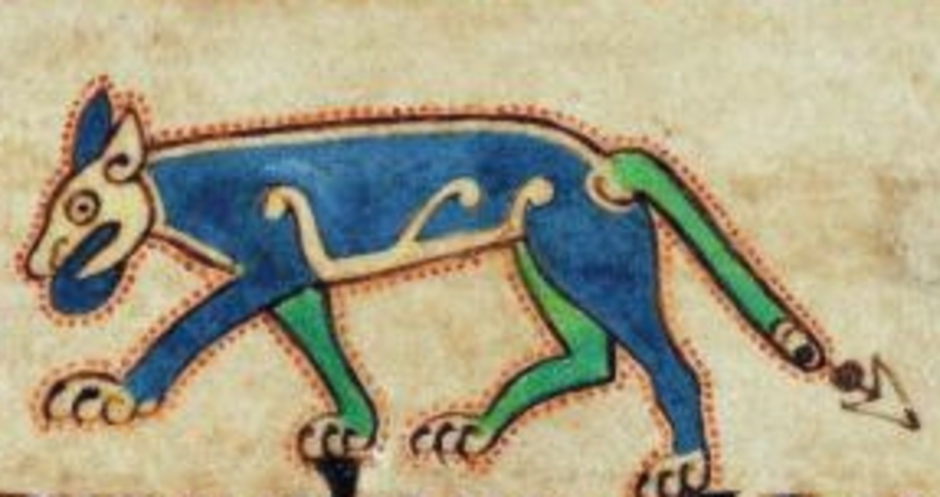
Celtic Scholars Talk About Ancient Irish Kinships
"Ní bódach mé. Tá fios mo ghinealaigh agam." / "I am no churl. I know my genealogy."
Summing up the direct link between genealogy and status in Gaelic society, this was the response of an Irish countryman in a market town in the early 20th Century when mocked by English-speaking jackeens.
- Conrad Maynadier Arensberg, The Irish Countryman, 1937
Do you know the ethnic group of your ancient Irish ancestors? Do you descend from the Cruithin, Érainn, Laighin, Féini, Eoghanachta, Airghialla, or one of the Daorchlanna?
"In Ireland at all periods of our history the tendency has been to attach great ... importance to descent. In the early Christian centuries the ethnic origins of the different sections of the Irish population were vividly remembered.... "
- T. F. O'Rahilly, Professor of Irish at Trinity College, Dublin ((1919-1929); of Celtic languages at University College Cork (1929-1935); and University College Dublin (1935-1941); and Director of the School of Celtic Studies at the Dublin Institute for Advanced Studies (1942-1947)
Do you know your tuath - your 'people' or 'tribe'?
In a tribal society, the word 'tribe' has no negative connotations. "We may legitimately describe the tuath as tribal, in that it was a population group which formed a distinct political entity.... In many parts of the country tribal sub-kings and provincial over-kings remained in power until the end of the sixteenth century..."
- Francis John Byrne, Professor of Early Irish History at University College Dublin (1964-2000)
Am I my family or myself?
Gaelic society was based on the fine, the family, not the individual. “... tribal, rural, hierarchical, and familiar (using the word in its oldest sense, to mean a society in which the family, not the individual, is the unit) -- a complete contrast to the unitary, urbanised, egalitarian and individualist society of our time.”
- Daniel Binchy, Senior Professor of the School of Celtic Studies, Dublin Institute for Advanced Studies
Do you descend from one of the 'archaic peoples' of Ireland?
"Dimly perceptible as a background to these events is the existence of a mosaic of peoples ... Their names appear in various forms... Some contain animal names, such as Artraige 'bear-people', Dartraige ' calf-people', Sordraige 'boar-people'; others, such as the Ciarraige, the Dubraige and Odraige, have a colour (ciar 'black', dub also 'black', odor 'dun') as the first element; others, such as the Cerdraige ('craftsman-people'), seem to have an occupational term as the first element... If the suggestion that the Bibraige were in fact the 'beaver-people' be correct - since the beaver is not known in Ireland; such a name must derive from a remote continental past."
- Dr. Gearóid Mac Niocaill, Professor of History, National University of Ireland - Galway (1977-1997)
Do you know the name of the god your own people swore by?
"... It seems indisputable, however, that one element in these names is in fact the name or epithet of a divinity which that people had in common - 'the god by whom my people swear', as the law-texts put it. One such people, the Boandraige, have as the first element of their name that of the goddess Boand, who elsewhere appears as the divinised river Boyne; another, the Luigne, contains the name of the god Lug. Whether such a divinity was regarded as being also an ancestor ... is not clear."
- Dr. Gearóid Mac Niocaill, Professor of History, National University of Ireland Galway (1977-1997)
What about your clann? What other families are your close relatives?
"Medieval Ireland was, of course, a society of clans or lineages... (In) a lineage-based society the keeping of genealogies is of primary importance. Not only is membership of the clan conferred by descent, but the precise details of this descent may determine a person's legal rights in, for instance, the property of the clan. In Ireland the keeping of genealogies was entrusted to the professional families of scribes and chroniclers."
- Kenneth Nicolls, Professor of History, University College Cork (1972-2004)
Do you descend from ríthe - kings?
"Ireland had redundance of royal blood, and by virtue of the Irish system of succession and of marriage laws which approximated to polygamy, dynastic families proliferated at the expense of the commoner sort ..."
- Francis John Byrne, Professor of Early Irish History at University College Dublin (1964-2000)
Copyright © 2015 by Gerald A. John Kelly
All Rights Reserved - No reproduction without written permission of the author

